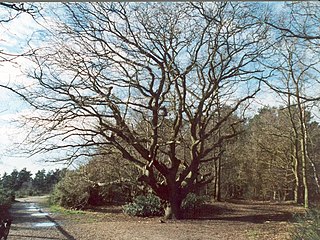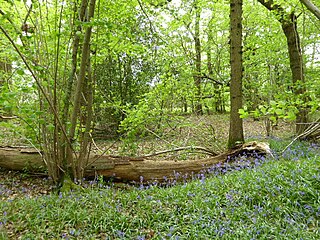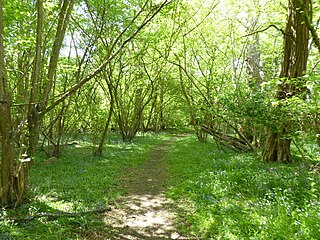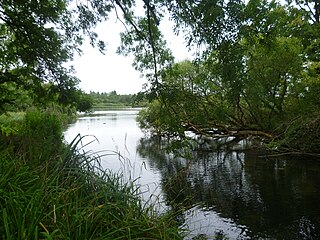
Weir Wood Reservoir is a 153.5-hectare (379-acre) biological Site of Special Scientific Interest west of Forest Row in East Sussex. It is in High Weald Area of Outstanding Natural Beauty and an area of 32.6 hectares is a Local Nature Reserve which is owned by Southern Water and managed by East Sussex County Council and Southern Water.

Esher Commons is a 360.1-hectare (890-acre) biological Site of Special Scientific Interest south-west of Esher in Surrey. It includes Esher Common, Fairmile Common, West End Common and Oxshott Heath. Esher Common and West End Common are Local Nature Reserves.

Hedgecourt is a 33.6-hectare (83-acre) biological Site of Special Scientific Interest west of Felbridge in Surrey. An area of 5-hectare (12-acre) is managed by the Surrey Wildlife Trust.

Kempton Park Reservoirs are a Site of Special Scientific Interest in the London Borough of Hounslow and Kempton Park in Surrey. It is owned by Thames Water. It is part of South West London Waterbodies Ramsar site and Special Protection Area Kempton Park East reservoir is also a local nature reserve.

Whitmoor Common is a 166-hectare (410-acre) biological Site of Special Scientific Interest on the northern outskirts of Guildford in Surrey. It is part of the Thames Basin Heaths Special Protection Area and the 184.9-hectare (457-acre) Whitmoor and Rickford Commons Local Nature Reserve, which is owned by Surrey County Council and managed by the Surrey Wildlife Trust.

Whitewater Valley is a 4.3-hectare (11-acre) biological Site of Special Scientific Interest north-west of Wittering in Cambridgeshire.

South Thames Estuary and Marshes is a 5,289-hectare (13,070-acre) biological Site of Special Scientific Interest which stretches between Gravesend and the mouth of the River Medway in Kent. Part of it is a Nature Conservation Review site, Grade I, and part is a Royal Society for the Protection of Birds nature reserve. It is part of the Thames Estuary and Marshes Ramsar internationally important wetland site and Special Protection Area under the European Union Directive on the Conservation of Wild Birds.

Papercourt Marshes is a 10-hectare (25-acre) nature reserve in the south-east of the borough of Woking in Surrey. It is managed by the Surrey Wildlife Trust. A roughly 50 hectares lake and associated surrounds, including the marshes totalling 20.0 hectares is designated a biological Site of Special Scientific Interest as Papercourt.

Slinfold Stream and Quarry is a 2.3-hectare (5.7-acre) geological Site of Special Scientific Interest west of Horsham in West Sussex. It is a Geological Conservation Review site.

Duncton to Bignor Escarpment is a 229-hectare (570-acre) biological Site of Special Scientific Interest west of Pulborough in West Sussex. It is a Special Area of Conservation and Bignor Hill is a Nature Conservation Review site, Grade I.

House Copse is a 12.5-hectare (31-acre) biological Site of Special Scientific Interest west of Crawley in West Sussex.

The Mens is a 205.2-hectare (507-acre) biological Site of Special Scientific Interest west of Billingshurst in West Sussex. It is a Nature Conservation Review site, Grade I and a Special Area of Conservation. An area of 166 hectares south of the A272 road is managed as a nature reserve by the Sussex Wildlife Trust.

Philpot's and Hook Quarries is a 2.6-hectare (6.4-acre) geological Site of Special Scientific Interest south-west of Sharpthorne in West Sussex. It is a Geological Conservation Review site.

Fyning Moor is a 12.8-hectare (32-acre) biological Site of Special Scientific Interest south of Fyning in West Sussex.

Perry Copse Outcrop is a 0.2-hectare (0.49-acre) geological Site of Special Scientific Interest in Fernhurst in West Sussex. It is a Geological Conservation Review site.

Rake Hanger is a 28.2-hectare (70-acre) biological Site of Special Scientific Interest north-west of Midhurst in West Sussex.

Alresford Pond is a 30.2-hectare (75-acre) biological Site of Special Scientific Interest in New Alresford in Hampshire.

















